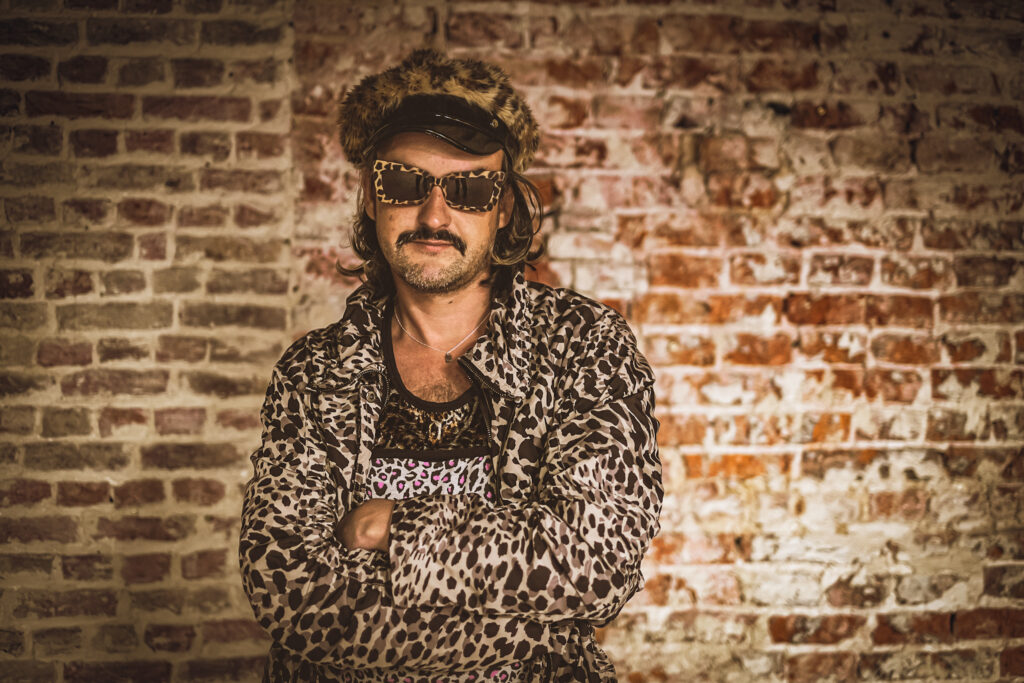Resident DJ at Le Belgica bar and part of Les Supers-Viseurs, DJ Manuszko likes to surprise people with his sets at queer events.
Tell us a bit about yourself. What has been your journey?
DJ Manuszko was born in the early 2010s at “J’en suis, j’y reste”, the LGBTQIA+ center in Lille, northern France. I’d always been fascinated by DJs, and when I got back from an exchange trip between LGBTQI associations in Lille and Krakow in Poland, I started making playlists for when I was running the association’s bar, and the feedback I got from people was so great. People used to call me DJ Mans, but I wanted to have a different name for DJing. In Krakow, they called me Manuszko, so I took that name. In the beginning, I just wanted to create a nightlife character. Someone I would have liked to have met when I was a young gay man lost in a small town with no LGBT venues or associations, and before access to the Internet became more widespread. Just creating a character I’d never dared to be even in my wildest dreams because at that time I knew nothing about mixing. I selected sounds for the LGBTQIA+ center, for a radio show by an association in which I was very involved at one time called “Les flamands roses”, one of Lille’s oldest queer associations, on Radio Campus Lille, called “Tata bigoudi, l’émission qui défrise l’hétérocratie”. A friend of mine told me one day: “You should be a DJ, you’ve got everything you need for it”. Before he said that, I’d never thought of trying it, but from that day on, I started going out more, dancing in front of DJs, watching everything they were doing on their controllers behind my sunglasses, learning on my own, and starting to have DJ and artist buddies. I started mixing at the non-mixed parties pédé-gay-bi cis et trans* we organized, called “soirées folles … NE PAS s’abstenir !” in reaction to the very exclusionary “effeminate please abstain” messages often found on gay dating apps. We were trying to create a space where queer-identified people of all ages could meet differently. One day, I was offered a job in Brussels with a gay health association, and that’s when I landed in Brussels in 2016. I started posting mixes on Mixcloud and discovering Brussels’ nightlife, including its queer scene. I quickly met many DJs whom I adored, while at the same time perfecting my technique. I owe a lot to some venues that gave me a chance and put their trust in me. I mixed at 123 rue royale for the first time in Brussels, the place where the first Chaudière parties were organized. Chris Miller from La Garçonnière Prod, who created “Last Days Of” and “Homografia Festival” asked me to mix with him in b2b at “Pink Night” at La Bodega. In 2017, I took part in a DJ competition in Dolores gay bar. I finished 2nd but it made me known to gay / LGBTQI bars and parties as a DJ. That’s when I started DJing at Le Belgica bar, where I’m now a resident. I also DJ to support organizations, associations or causes that are dear to me. In the early days of deconfinement, I also organized the “Queer Queer Moustache” events at Madame Moustache. I’m very proud of the line-ups I was able to propose there, but I was missing a more collective dimension, so when the place had to close due to a fire, I decided this year to join the collectives that had supported me from the start: Les Chaudières and La Garçonnière Prod. I’ve also played from time to time at Stammbar, which is Brussels’ cruising bar, notably at “naked” parties, and it’s very stimulating and interesting to play for people who are also having sex. I realized that I don’t play the same thing when people are naked. It’s another atmosphere that I’ve loved experiencing.
What are your current or future projects?
This year I quit my last full-time job and I’m giving myself a year or two to see how far I can go as a DJ, party organizer and other artistic projects. I’m resident at Le Belgica bar, Last Days Of and more recently The Agenda, where I’m exploring my pop side a bit more. I’m in a phase where I’m taking the time to explore new spaces, new audiences, making B2Bs with lots of different people whose mixes I love in a wide variety of musical genres. During lockdowns, I started playing with my best friend Thom Leblanc and created Les Supers-Viseurs. The name comes from the fact that on the gay street, people would often see the two of us together and say “so, you supervise the street?”. Pretty soon, we were playing regularly together, exploring a more rave and sometimes rock side. This autumn we’re playing at Kiekebiche event on October 28. I also B2B’s with Kip Korazón at The Agenda. I also mixed for the first time at Maison Du peuple with Spirite. Since 2020, I’ve been the main DJ, spinning the sounds of Brussels glam pop band “GLOW!”. I also love this more behind-the-scenes role to support a band I believe in. With the Chaudière collective, we organized a Sunday afternoon event with Melissa Juice mixing. I also mixed before and after the concert of a cover band of Nirvana and Courtney Love songs by queer buddies called “Kurt and Courtney”, who define themselves as anti-grunge. I want to explore all musical facets, which are quite broad, and maybe explore singing. Often when people ask me what genre I play, I find it hard to answer. What I like to do is play with genres and surprise people. For example, I love seeing lots of punks dancing in a squat without knowing that it’s a Spice Girls instrumental remix, or playing very underground remixes of pop stuff in places that aren’t underground at all.
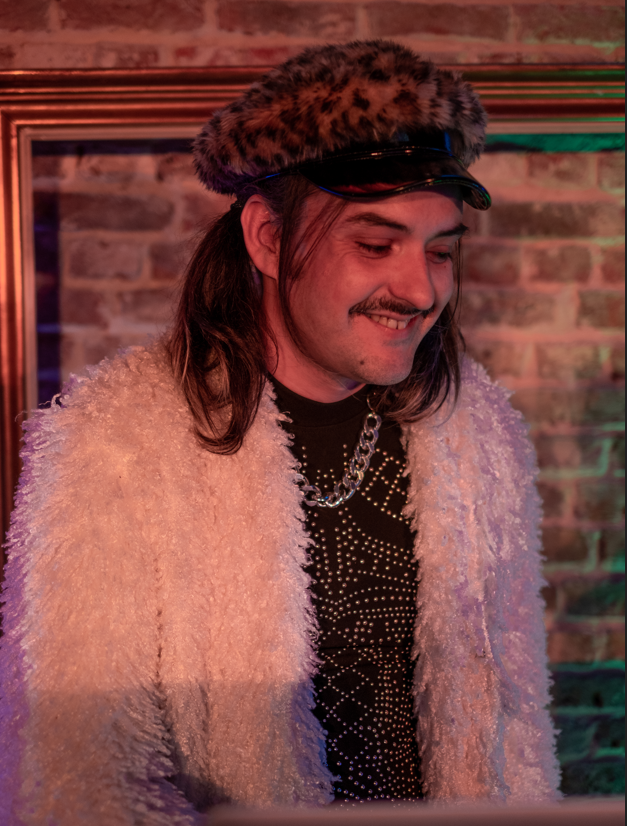
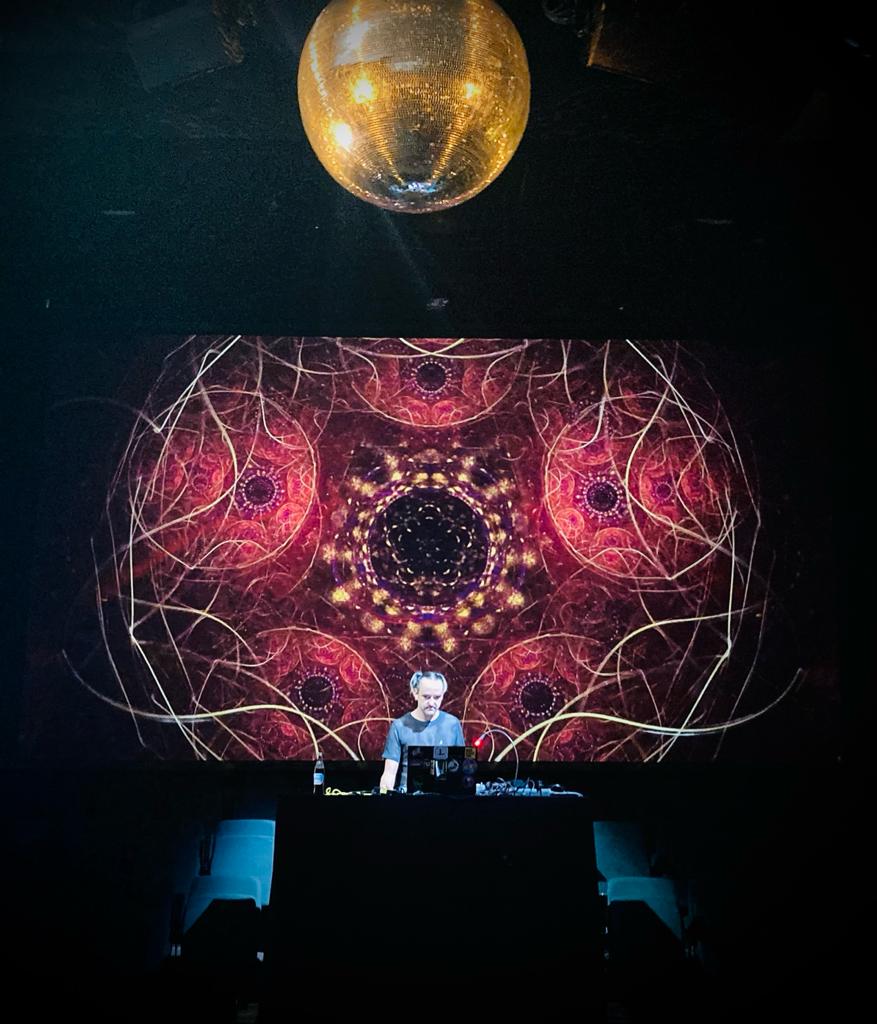
What does being a part of the Brussels queer community mean to you?
Being part of the queer community in Brussels means a lot to me. Even though I first learned a lot from queer activists in Lille, it was in Brussels that I first felt at home, accepted as I am. It’s in Bruseels that I discovered a nightlife that I like, and that I went from creating a character to gradually becoming that person. It’s here that I’ve learned so many things, but first and foremost that my dreams can come true. This is where I’ve met so many inspiring people, some of whom I admire and some of whom have become my friends. This city and its LGBTQIA+ galaxy has welcomed me, nurtured me and made me grow every day, enabling me to meet so many beautiful and diverse people, to experience things, to live so many beautiful moments and help create others. I consider many new possibilities here, and I can’t see myself living anywhere else. What I also love here is that there’s not just one way to be queer here, it’s a whole galaxy to explore. It is constantly evolving. I love discovering all these places and building bridges between people who wouldn’t otherwise meet.
What are your queer influences?
When I was very young, I remember seeing an interview with the Spice Girls on French TV, where they said “girl power is like black power or gay power, it’s being there for others who are going through the same problems as you, standing together rather than fighting amongst ourselves”. They don’t identify as queer, but hearing this helped me a lot to accept myself as a young teenager questioning my sexuality and gender. By following them, I stopped listening to the music of my parents (who had very good tastes, by the way) and became interested in the sounds of my generation at the end of the 1990s, listening to the charts and discovering bands like Placebo, Skunk Anansie, … I think my first queer concert was Peaches at the Aéronef in Lille for the tour of the Fatherfucker album, it was like a big slap in the face that did me a lot of good. In my militant years in France, I remember that I enjoyed discovering Sexy Sushi. Recently, I played with Les Supers-Viseurs just after Rebeka Warrior who was part of this band at the Recyclart for a great evening called “Mon Cul, Ta Praline”. What an evening and what a chance for me to meet artists who are part of the soundtrack of your life!
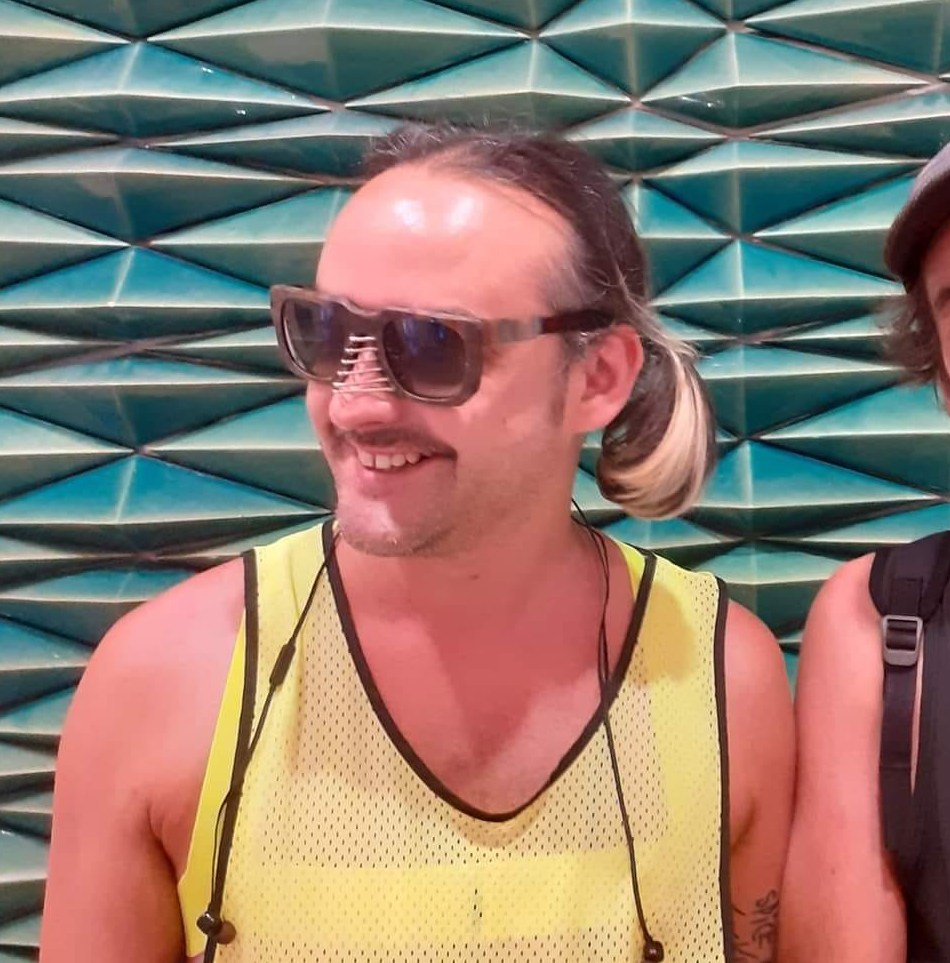
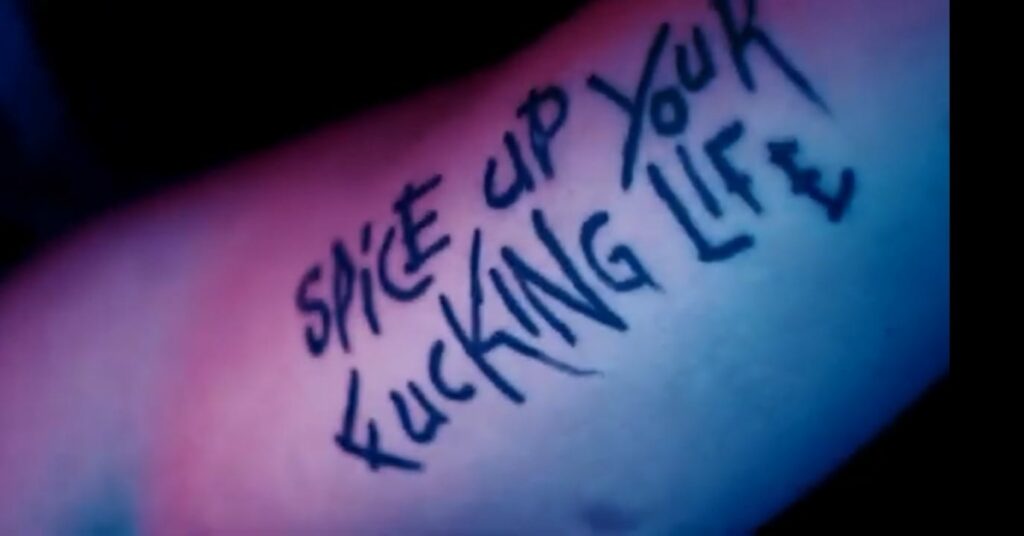
What Brussels queer initiatives are you fond of?
As we’re lucky enough to have quite a large queer galaxy, there are plenty of queer or very queer-friendly spaces that I love, in addition to the ones where I’ve taken part in as an organizer or as a DJ. I remember, for example, my first Gay Haze, which is a sort of Sunday afternoon rave organized each time in a different venue, I was amazed by the music, then by the audience and the general atmosphere. I met a lot of queer people there but also in the rue marché au charbon, at the Stammbar which has evolved so much since I arrived in 2016. The audience is diversifying without losing the gay clientele of the beginning. It’s very interesting to see it evolve. I also remember my first Los Ninos at the previous Recyclart venue and later at FFormatt, which was a great venue that didn’t survive the lockdown unfortunately. The Pink Nights, the Pink Screens Festival closing parties are a real queer highlight for me. Recently, there’s the Grands Carmes, which allows queer artists to experiment with things. It’s great, but we often have to stop at midnight, which is when I normally arrive at parties. I really miss the Chaudières at 123 or Barlok. There’s a lack of less institutionalized, squatted temporary venues, big enough not to bother neighbors, as it was the case at Barlok. I recently discovered some really cool queer nights at C12, the Lube evenings. The current evolution of C12 is really interesting to see, they’re experimenting with new things and it’s going well! At ZodiaK, which closed recently, there were quite a few very interesting queer evenings. I remember a completely crazy “Love Carnage: Last Days Of x Darling!” evening. It was brilliant. Zodiak has promised to come back elsewhere. To be continued! This year, the new DJs I loved were Sombre Baxter, who we already knew as King Baxter, and Acid Lily, who just killed it! See you on the dancefloors !
Picture credits: Samy Soussi, Eric Gwen
You may also like
-
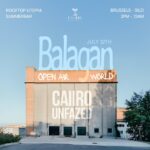
Balagan World: When the Beat Builds a Better World
What if nightlife wasn’t just about escape — but connection? That’s the vision behind Balagan
-
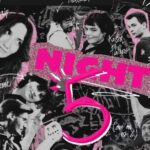
NIGHT 5: The Official Kickoff to Festival Season in Brussels!
Get ready to ignite your summer—NIGHT 5 is here to launch the festival season with
-

Why Staying in Brussels in July Is Absolutely Brilliant
In partnership with Visit.brussels If you think summer in Brussels means empty streets and closed
-
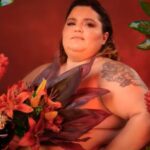
Barbara Butch: The Trailblazing DJ Who Turned the World’s Stage into a Celebration of Diversity
Meet Barbara Butch, the French DJ, activist, and cultural icon who’s been spinning more than
-
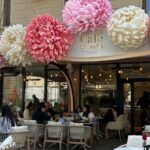
Bucharest, a capital that reveals itself with an open heart
When Léon, a history and culture enthusiast, and Edward, a design aficionado and nightlife devotee,

